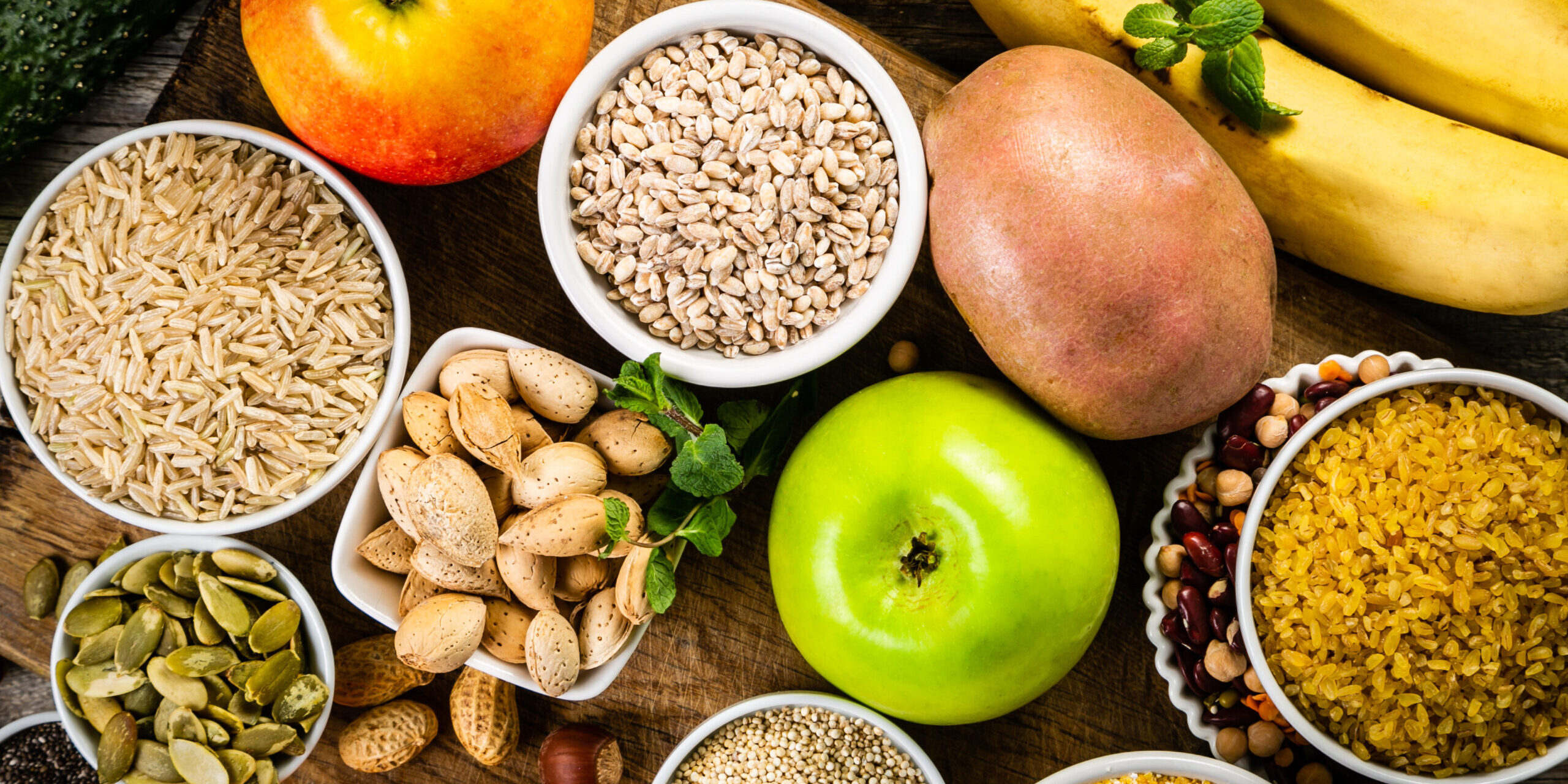By Barbara Broggelwirth, RD
Why are carbohydrates so often demonized when it comes to weight loss? In a word: satiety. Satiety refers to how long a particular nutrient (protein, fat or carbohydrates) keeps people feeling full and more satisfied for a longer period of time.
Studies show that people who replace their carbohydrates with protein eat up to 400 calories less per day, which can add up to almost a pound of fat loss per week. Protein also plays an important role in muscle building and muscle maintenance, which is very important because muscle increases metabolism.
So how do carbohydrates fit into the diet? It is important to differentiate between carbohydrates that will provide nutrients and fiber and those that will just result in excess calories.
Generally speaking, carbohydrates can be broken down into four broad categories: complex starches, milk products, fruits and vegetables, and refined starches.
Here a few quick ways to identify them.
- Complex Starches – Whole grains, brown rice, legumes, and starchy vegetables.
- Milk and milk products – Milk, cheese, yogurt
- Produce – All fruits and vegetables
- Refined Starches – White bread, mashed potatoes, cookies, cakes, pastries, candy and fruit juice.
People who follow high protein / low carbohydrate diets usually aim for about 100g of carbohydrates per day, with only one of those servings a complex starch.
| Food | Serving Size | Carbohydrate Content |
| Fruit | 1 med. Piece or ½ cup | 15 grams |
| Milk, skim or 1%
Yogurt (no added sugar) |
1 cup
¾ cup – 1 cup |
12 grams
12 grams |
| Legumes and starchy vegetables (beans, lentils, peas, corn, etc.) | ½ cup | 15 grams |
| Limit to ONE serving daily: | ||
| Whole wheat bread | 1 slice | 15 grams |
| Whole wheat pasta | ½ cup | 15 grams |
| Brown rice or quinoa | 1/3 cup | 15 grams |
| Oatmeal (plain, unsweetened) | ½ cooked | 15 grams |
References:
Today’s Dietitian: High-Protein Diets and Weight Loss By Diane Welland, MS, RD
Layman DK, Evans EM, Erickson D, et al. A moderate-protein diet produces sustained weight loss and long-term changes in body composition and blood lipids in obese adults. J Nutr. 2009;139(3):514-521.
Barbara Broggelwirth is a Registered Dietitian Nutritionist who is currently working with Bariatric and Medical Weight Management patients. She works with patients to help them achieve their health and weight loss goals.


